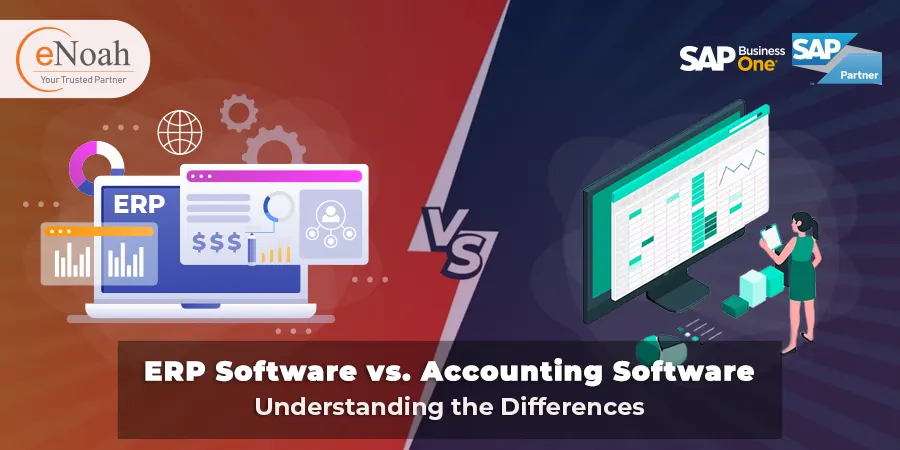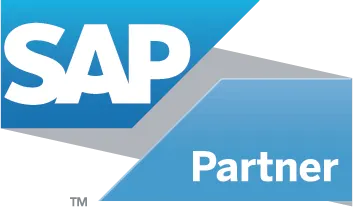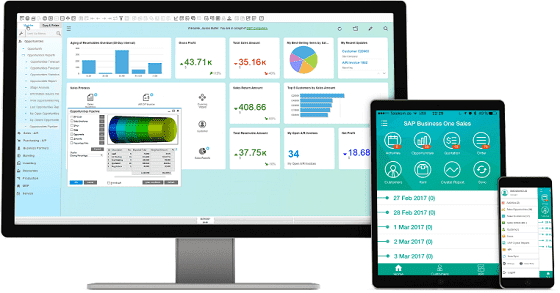 Navigating the Differences Between ERP Software and Accounting Software, with a Spotlight on SAP Business One
Navigating the Differences Between ERP Software and Accounting Software, with a Spotlight on SAP Business One

ERP Software vs. Accounting Software: Understanding the Differences
Accounting Software primarily focuses on financial processes such as accounts payable/receivable, general ledger, invoicing, and basic financial reporting. These systems are instrumental in handling day-to-day transactions, maintaining ledgers, and ensuring compliance with financial regulations.
On the other hand, ERP Software integrates a broader range of functionalities encompassing not only accounting but also other core business operations like inventory management, human resources, supply chain management, customer relationship management (CRM), and more. ERP systems aim to provide a centralized platform for data and process management across various departments within an organization.
Key Differences:
Scope of Functionality: Accounting software is designed specifically for financial tasks, while ERP software covers a wider array of business processes.
Integration: ERP solutions offer integration across multiple departments, ensuring data coherence and seamless workflow, while accounting software primarily focuses on financial data.
Scalability: ERP systems are more scalable and adaptable to the growing needs of an expanding business compared to accounting software, which might become limited in functionality as a business expands.
Customization: ERP software often allows more customization to meet specific business needs, whereas accounting software is generally more rigid in its functionalities.
The Case for SAP Business One as an Optimal ERP Solution
Among the myriad of ERP software available in the market, SAP Business One stands out as a comprehensive and powerful solution designed especially for small to medium-sized enterprises (SMEs).
Here are some reasons why SAP Business One is often considered a top choice:
Integrated Functionality: SAP Business One covers various aspects of business operations, including finance, sales, inventory, CRM, and more, providing a holistic view of the organization.
Scalability: It grows with your business. SAP Business One can accommodate the evolving needs of a company, making it suitable for scaling operations.
Customizability: It allows for tailored configurations, enabling businesses to adapt the software to their specific requirements without extensive programming.
User-Friendly Interface: The interface is intuitive and user-friendly, allowing for easier adoption and smoother transitions for employees.
Robust Reporting and Analytics: SAP Business One provides powerful reporting tools, facilitating informed decision-making through data analysis and insights.
Reliable Support and Updates: Being a product of SAP, users benefit from continuous support, updates, and a vast community of users sharing knowledge and best practices.
Conclusion
While accounting software serves a crucial role in managing financial data, the broader functionalities and integration capabilities offered by ERP software make it an indispensable tool for holistic business management. In this realm, SAP Business One emerges as an exemplary ERP solution for SMEs due to its comprehensive features, scalability, customizability, and robust support.
Investing in the right ERP solution like SAP Business One can significantly enhance efficiency, streamline operations, and drive growth for businesses, making it a compelling choice for those seeking a comprehensive and integrated approach to manage their enterprise.


